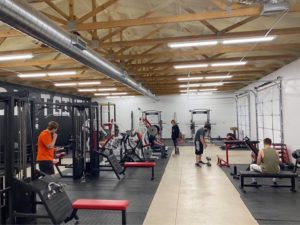A lot of people think they need to come to the gym every day, but that’s not something we recommend. It’s actually counterproductive.
Why is that? Recovery.
For example, when you come in on Monday and work a specific muscle (like your chest or legs), it takes a minimum of 72 hours for that muscle to recover from that.
You need that minimum amount of time to recover before you work that specific muscle again. That’s why we space out the workouts so your muscles have time to recover.
So what do you do on the days you’re not working out? It’s important to rest, but you don’t want to go home and lay in bed all day. We need to think about rest as active rest. It’s a great idea to do some cardio exercises, like go for a walk or a run. Whatever cardio you like, do that.
Those are also the days you can really focus on your nutrition (because you’re not taking the time to work out). You can take that time to cook something healthy for dinner (and maybe a little extra to eat on your workout day).
And don’t forget about sleep.
Sleep is so important. Sleep helps keep your body healthy, your immune system functioning, and your brain thinking. Cognitive ability declines fast when you don’t get enough sleep, and your body can’t recover as well from workouts.
Not everybody needs 8 hours of sleep, but some people do, and that’s OK. It’s different for everyone. I personally function well on 6 hours of sleep. I can function on 5 in the short term, but if I get anything less than 5, it’s hard for me to be productive. So I don’t do that.
Figure out what works for you in terms of hours you need to sleep, and make sure you get that time consistently. Whether you sleep from 8pm – 4am, or midnight to 6, it doesn’t matter. What matters is that you get the sleep you need, consistently.


